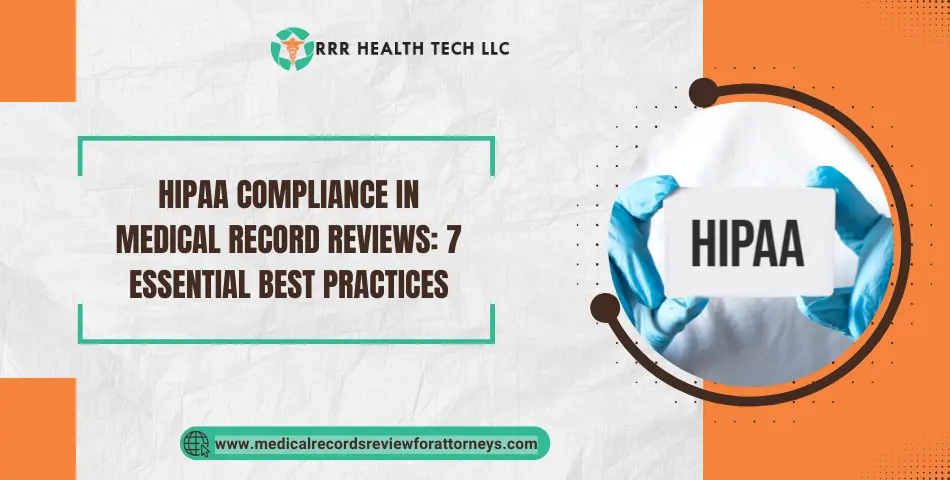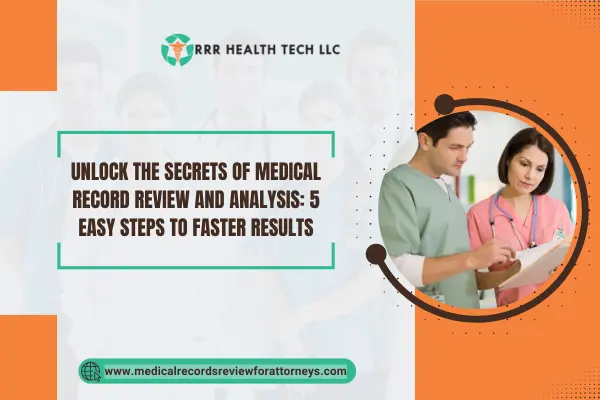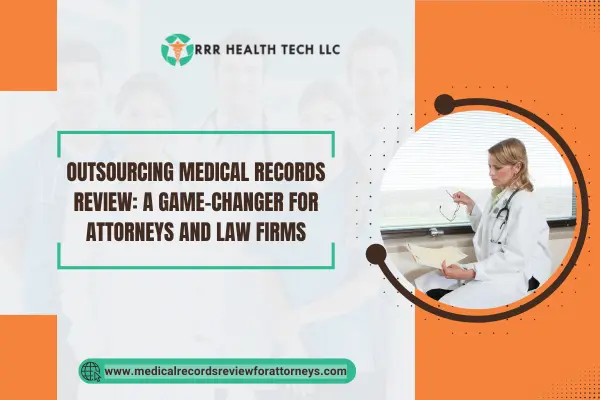
Introduction
Medical record reviews are a core activity in legal, insurance, and healthcare decision-making. Besides, having sensitive patient information comes with a lot of responsibilities, so meeting the requirements of the Health Insurance Portability and Accountability Act (HIPAA) is another massive responsibility. When requirements for HIPAA compliance are not met, the consequences can be great, including penalties and loss of trust, along with possible data breaches.
This blog looks at the seven basic best practices for HIPAA compliance in medical record reviews, considering key areas such as data security and access control, staff training, and audits.
1. Understanding HIPAA Compliance
HIPAA compliance is about safeguarding Protected Health Information (PHI) by covered entities and business associates. The HIPAA Privacy Rule, the HIPAA Breach Notification Rule, and security regulations provide the essential standards for preventing patients’ privacy violations as well as ensuring data safety. Organizations with medical records handle requirements under the umbrella of HIPAA compliance that encompasses administrative, physical, and technical safeguards to maintain confidentiality and integrity in handling medical records.
2. Implementing Robust Data Security Measures for HIPAA Compliance
Medical records are exposed to high risk from cyber threats. The enactment of strong data security measures must be established to ensure HIPAA compliance in these organizations. The measures include:
- Encryption for electronic health records (EHR) and transmission
- Firewall protection to prevent unauthorized access
- Safe storage in the cloud that meets HIPAA network requirements
- Integrity controls to avoid tampering with data
These security policies assist in preventing data breaches and unauthorized disclosure of PHI.
3. Establishing Strict Access Control Protocols
However, medical records should be available to authorized personnel only. It is advisable to set strict access protocols that include the following:
- Role-based access control (RBAC): this should only allow relevant staff to view certain relevant records
- Multi-factor authentication (MFA)
- Regularly updated login credentials to minimize risks
Access to PHI should be strictly monitored and recorded by covered entities and business associates to prevent unauthorized usage.
4. Providing Comprehensive Staff Training Programs
When should you promote HIPAA awareness? The answer is—continuously. Staff training is vital to maintaining compliance and preventing breaches. Organizations should:
- Import training on HIPAA at least every calendar year
- Reference a HIPAA compliance checklist PDF for easy reference
- Teach the latest compliance checklist example on HIPAA to employees
- Train employees about the law regarding HIPAA medical records release as well as handling PHI
To avoid compliance gaps, all employees must understand their responsibility within the context of HIPAA regulations.
5. Conducting Regular Audits and Monitoring Activities
Regular HIPAA audits cover the compliance gaps. Organizations should:
- Identify and quantify risks through risk assessment procedures, complete self-audits
- Use HIPAA compliance checklist XLS for systematic evaluation
- Document all findings and set up an action plan for improvement
- Monitor and respond to identified breaches of HIPAA
Regular audits can find weaknesses before they become violations and strengthen compliance.
6. Ensuring Data Quality Assurance Throughout the Medical Records Review
Every review of medical records needs to be conducted while assuring the accuracy and reliability of the records. The organizations should:
- Set up quality assurance processes for record reviews
- Use automated integrity controls for inconsistency checking
- Ensure compliance documentation is current and securely saved
Being meticulous at data verification ensures and safeguards the confidentiality of the patient and legal integrity.
7. Engaging Professional Expertise When Needed for HIPAA compliance
They may seek expert assistance to make their medical practice and law comply with HIPAA. This consists of:
- Consulting security officers for regulatory direction
- HIPAA compliance services for software
- Partnering with HIPAA-trained professionals for handling medical records
Ensures adherence to HIPAA Title 2 and enhances compliance with best practices.
Conclusion
HIPAA compliance is one of the most critical factors in medical record reviews. The seven outlined best practices-understanding HIPAA, implementing data security, enforcing access controls, training staff, conducting audits, maintaining data quality, and going for professional guidance-can thus be followed by organizations as they protect PHI from costly violations.
Contact us today for the complete HIPAA compliance checklist PDF and expert guidance on secure medical record reviews!
FAQs
How do you ensure HIPAA compliance?
HIPAA compliance is by implementing strong data security measures as well as access control measures, regular audits, staff training, and conforming to the rules set by HIPAA.
What are the 5 most important parts of HIPAA?
Among the five essential parts of HIPAA are the Privacy Rule, Security Rule, Breach Notification Rule, Enforcement Rule, and Transactions & Code Sets Rule.
What is the best way to ensure full compliance with HIPAA Title 2?
A robust security policy, regular employee training, and utilization of compliance documentation tools would ensure complete compliance with HIPAA Title 2.
What is the key to good HIPAA compliance?
Good HIPAA compliance is a mix of proactive security measures, ongoing employee education, and diligent oversight of data handling practices.
Reach out to our experts today for any assistance regarding HIPAA compliance in medical record reviews.


